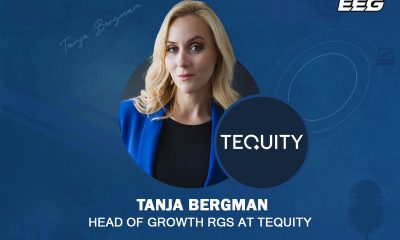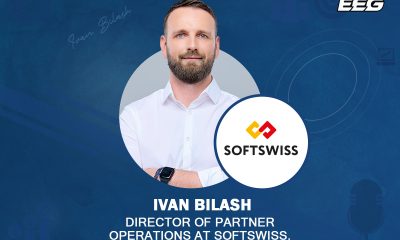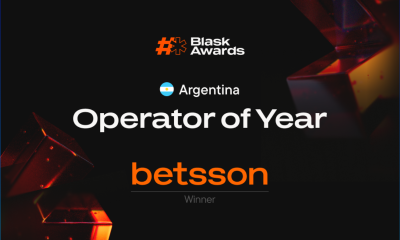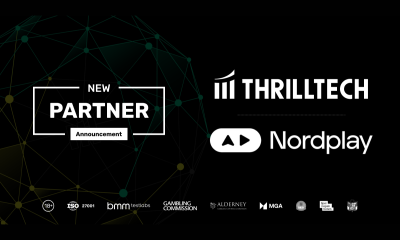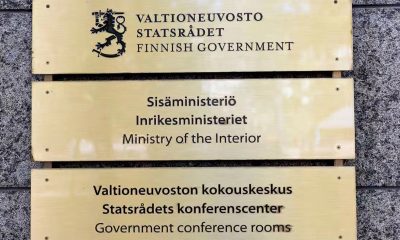Interviews
HIPTHER Community Voices: Interview with Attorney-at-law and founder at Kancelaria Adwokacka Dr. Justyna Grusza-Głębicka

With over a decade of experience in legal proceedings and a focus on gambling regulation and anti-money laundering compliance, Dr. Justyna Grusza-Głębicka is a leading voice in navigating the legal complexities of the gambling sector. In this interview, she shares her insights on the effectiveness of current safe gambling campaigns, the growing influence of social media in promoting illegal gambling, and the urgent need for regulatory reform in Poland.
Do you believe current awareness campaigns about safe gambling are working? What more should be done to educate players?
I do not have detailed analysis or data to confirm whether they are truly effective. However, the problem still exists. First of all, I am contacted as a lawyer by players who feel deceived by gambling operators. Players report violations regarding responsible gambling (for example, offering gambling to individuals who show clear signs of addiction) or in the area of AML (disregarding the fact that someone is gambling from another EU country when the operator does not hold a license there). Moreover, the media reports numerous cases involving the exposure of children to gambling – for example, by placing slot machine like devices in amusement parks or introducing gambling like mechanisms into video games accessible to minors. These violations are numerous, so clearly more can be done. To better educate players, influencers and social media platforms should be involved in the campaigns. These are currently the most effective tools for reaching people.
What are some common ways illegal gambling sites reach Polish players today? Are social media platforms a big part of the problem?
Social media plays a significant role. Influencers are actively involved in promoting illegal gambling and are very effective, especially as role models for younger generations. The live streams they conduct are difficult for enforcement authorities to monitor, and links to illegal casinos or poker sites are often shared in the comment sections during those streams. Currently, there is a trend of creating closed groups on platforms like Facebook, WhatsApp, or Signal, where players are encouraged to participate in illegal gambling and persuaded of its attractiveness. Big Tech companies like Google and Facebook are not helping in the fight against illegal gambling, as they allow such operators to advertise and be promoted through SEO.
Is the current legal system strong enough to go after these middlemen, or does it need updating too?
It is very difficult to prosecute gambling operators that offer services in Poland but are based abroad due to international legal obstacles. However, the current legal system does include tools for prosecuting intermediaries. Article 110a of the Fiscal Penal Code states that anyone who advertises gambling games in violation of the law or benefits from such advertising is subject to a fine. Additionally, under the Penal Code, there is a provision for aiding and abetting a prohibited act. Organizing gambling games without the required license is a criminal offense, and in such cases, the penalty for aiding and abetting is the same as for the principal offender. Aiding can be attributed to virtually anyone who supports the perpetrator in committing the offense.
Do you think most Polish players know whether a site is legal or not? How can they check this easily?
Research shows that only 38% of players know how to identify legal gambling websites. The legality of a gambling operator or website can be verified on the official government website: podatki.gov.pl or in the Register of Domains Used to Offer Gambling Games in Violation of the Law. However, the data indicates that it’s not that straightforward, as more than half of the players lack this knowledge.
What advice would you give to a player who has been scammed by an unlicensed online casino? Is there any legal step they can take?
First, I would advise reporting the crime to the authorities, even at the risk of personal liability, as this may be mitigated. In Poland, participating in foreign (unlicensed) gambling is punishable, so players also bear legal responsibility. Second, players can send payment demands to the entities responsible for organizing the illegal gambling, including payment institutions, although this approach may be ineffective. Under civil law, players are only protected when it comes to claims arising from legal gambling. Criminal proceedings are generally a better path. It’s also possible to seek protection through courts within the European Union.
And finally—do you think Poland is heading in the right direction when it comes to regulating online gambling? What are realistic changes you hope to see in gambling laws in the next year or two?
The last amendment to the Gambling Act was in 2016, so quite a bit of time has passed, and the world of modern technology is advancing rapidly. It is definitely time for change.
Recently, there has been an active debate on the future of gambling regulation in Poland – both within the industry and at the governmental level. A meeting of the Parliamentary Team for Free Market was organized under the topic: Illegal gambling in Poland – Diagnosis of problems in enforcement and proposed solutions, which I had the pleasure of attending. At the end of 2024, a new department dedicated to the gambling sector was also established. These may be signs of coming change.
The most visible demands include the liberalization of online casinos, which are currently under a state monopoly, and a shift from turnover tax to GGR. I believe that liberalizing the online casino market is a realistic development. Poland is struggling with a large grey market in gambling, and experiences from other EU countries show that allowing previously unlicensed operators to operate legally yields positive outcomes in this area.
Focusing on less headline-grabbing reforms, I would point to the need for improving the process through which the Ministry of Finance determines whether a particular game qualifies as gambling, currently, this process is quite costly. In general, facilitating better communication between the industry and the regulator would help avoid many misunderstandings caused by unclear legal provisions.
The post HIPTHER Community Voices: Interview with Attorney-at-law and founder at Kancelaria Adwokacka Dr. Justyna Grusza-Głębicka appeared first on European Gaming Industry News.
Interviews
Scaling innovation through the launch of Tequity Publishing
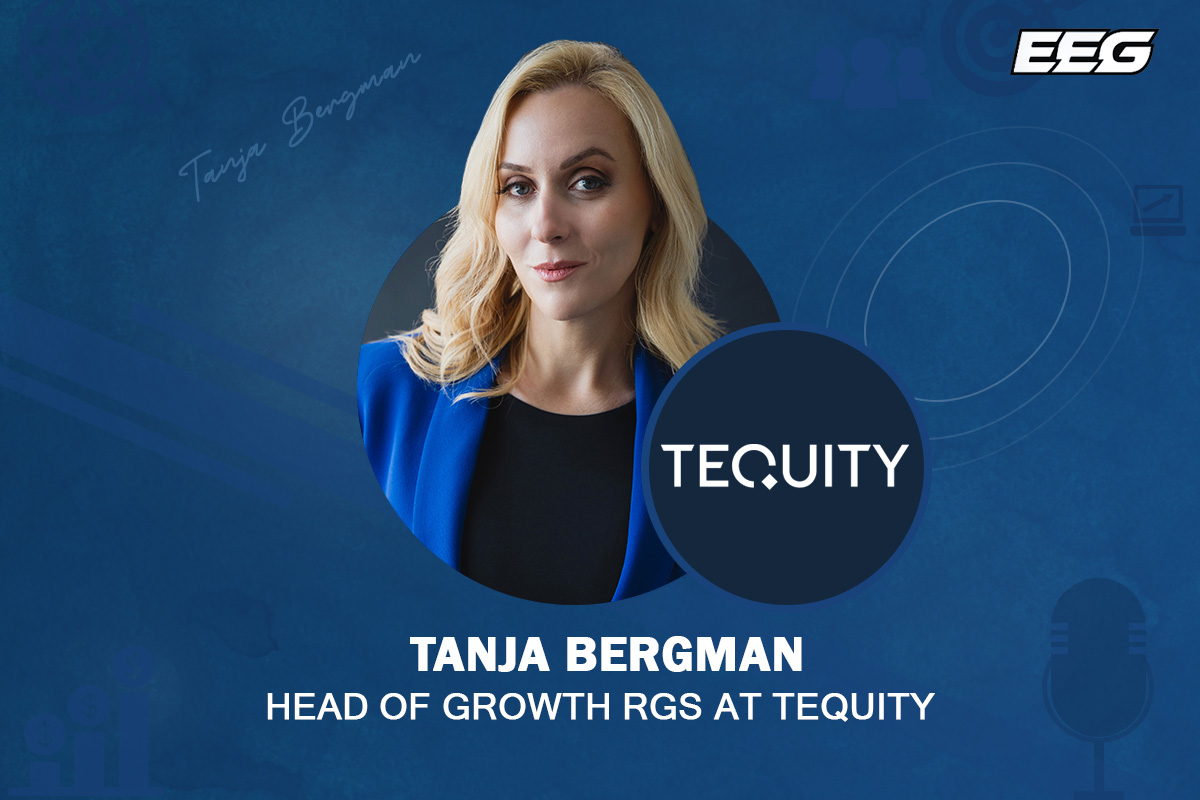
Following the announcement of its new publishing vertical and the successful debut of Royal Drop, we sat down with Tanja Bergman, Head of Growth RGS at Tequity, to discuss how this new arm is set to dismantle technical barriers for ambitious studios and why scalability is the new frontier for the ‘Burst Games’ genre.
Tequity has just officially launched its Publishing vertical. What was the primary catalyst behind this move?
The industry is currently in a fascinating place. There is no shortage of creative talent among studios, but there is a massive technical bottleneck. We have seen so many ambitious studios with incredible concepts – especially those moving beyond traditional slots – who have been getting bogged down in terms of getting those concepts out into the marketplace.
The catalyst for Tequity Publishing was simple. We wanted to break down those technical barriers. By handling the infrastructure, distribution, and compliance frameworks, we allow studios to do what they do best, which is build outstanding games. It’s about speed-to-market without compromising on the quality or the vision of their content.
The launch coincides with the release of Royal Drop. How does this game, and the partnership with Mirror Image Gaming and The Fortune Engine, showcase what Tequity Publishing is all about?
Royal Drop is the perfect proof of concept. It’s a collaboration that highlights three important pillars of modern game delivery. You have Mirror Image Gaming bringing that fresh, video-game-influenced Burst Games energy, The Fortune Engine provide the math tools and templates, and Tequity Publishing offers the global scale and distribution pathway.

It shows that when you remove operational friction, you can create a game-first experience that appeals to a new generation of players who want something more interactive than a standard 5×3 reel.
Tequity Publishing offers two models: RGSaaS and RGS-to-RGS. Can you walk us through the strategic benefits of each?
Flexibility is key, because no two studios are at the same stage of their journey. The RGSaaS model is our full-service offering. It’s designed for studios that want to focus 100% on the creative side. We provide the entire infrastructure and publishing framework and it is essentially a business-in-a-box for game creators.
The RGS-to-RGS model is a more streamlined, tech-first approach for studios that already have their own RGS but lack the distribution muscle. It allows them to plug into our growing operator and aggregator network instantly. Both models are built on the same philosophy: helping studios reach parts of the market they otherwise couldn’t access on their own.
You mentioned reaching new generations of players. How does this vertical specifically empower studios to innovate in ways they couldn’t before?
When a studio is concerned about how they are going to integrate with a multitude of different operators or how to navigate complex jurisdictional requirements, they tend to play it safe. They stick to what they know.
By taking that weight off their shoulders, we give them the opportunity to be brave. Studios like Mirror Image Gaming are pushing the boundaries of modern iGaming, taking influences from the video game world. This is exactly what the new generation of players is looking for. We provide the scalability so that these niche, innovative ideas can achieve mass-market impact.
It’s been a busy period for Tequity, following the success of your Originals series and the iBankroll partnership. How does the Publishing vertical fit into the broader Tequity roadmap for 2026?
It’s all part of becoming the ultimate technology partner for the gaming industry. Whether it’s our streamer-friendly Originals or our Bankroll-as-a-Service offering, the goal is to provide scalable, customisable solutions. Tequity Publishing is the natural evolution of that mission. We aren’t only providing the tools anymore, but also the pathway to the player. Looking ahead, you can expect a series of further launches through our three-way collaborations. We’re proving that the barrier to entry for innovation has never been lower.
Finally, for studios looking to scale quickly, what is your main message to them?
Don’t let technical noise drown out your creative signal. If you have a game concept that breaks the mould, you shouldn’t have to spend years building the distribution architecture to get it seen. That’s what we’re here for. We want to help you launch at a speed and scale that matches your ambition, so that you can make a significant splash in the industry.
The post Scaling innovation through the launch of Tequity Publishing appeared first on Eastern European Gaming | Global iGaming & Tech Intelligence Hub.
BetMGM
Breaking America with BetMGM
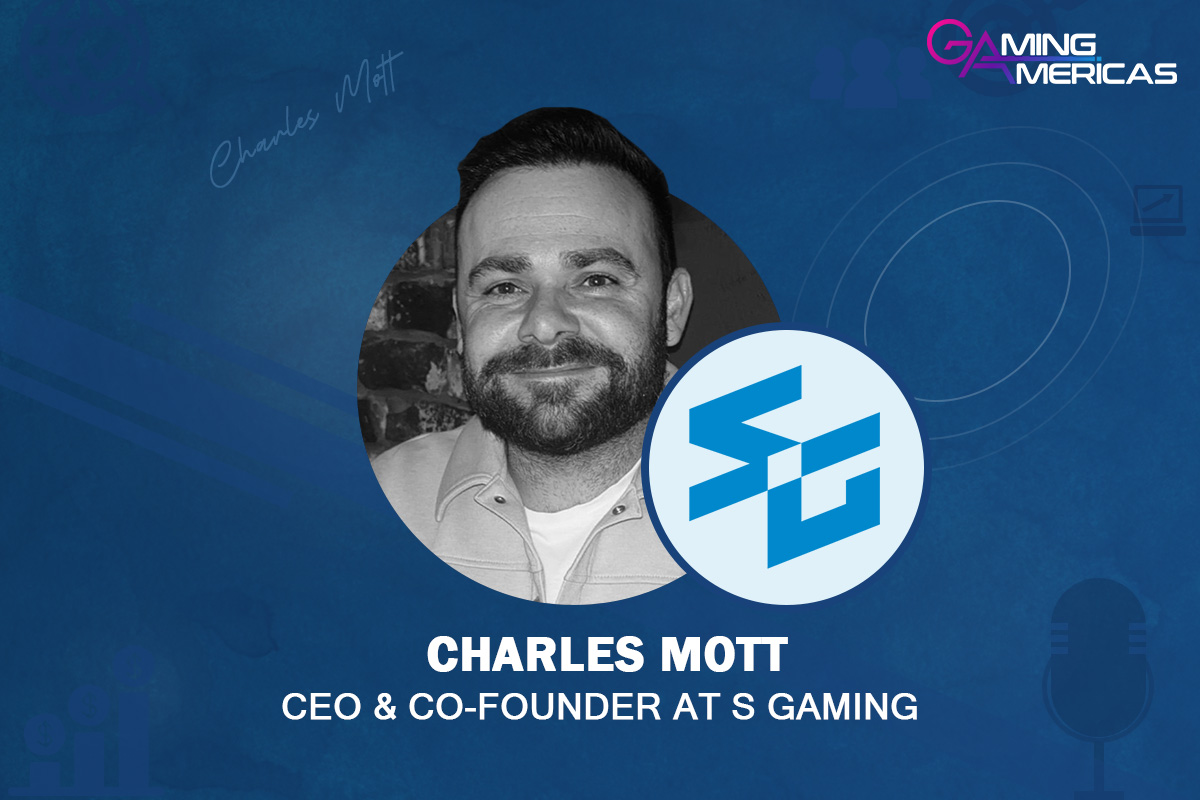
We speak to Charles Mott, CEO & Co-Founder at S Gaming, about the provider’s move into the US market with BetMGM and why more casual gameplay hits the mark with players stateside
Congratulations on your deal with BetMGM in the USA. Why is this such a milestone market launch for S Gaming?
The deal with BetMGM marks our hotly-anticipated launch in the US market, and sees our games go live to players in core regulated states such as New Jersey, Pennsylvania, West Virginia and Michigan. We see huge potential for our content in the North American market, and to make our debut with such a high-calibre operator is a testament to this. The US is still just finding its feet as a regulated online casino market, and our games, with their focus on sustainability and high entertainment, are the perfect fit for audiences who are used to land-based slots and are increasingly moving online. They are simple, easy to understand and play, and ultimately deliver tons of fun over longer playing sessions – just like the slot machines found on the floors of casinos in Las Vegas and beyond.
Just how important was it to go live with a tier-one operator like BetMGM? And how will the deal allow you to quickly build momentum in the US?
It’s mission critical. Going live with BetMGM allows us to build immediate trust with players, tap into a large and loyal playerbase, and simultaneously enter multiple regulated iCasino states at the same time. Now that we are up and running with BetMGM, we are turning our attention to striking partnerships with other operators active in the market. It’s pretty much the same blueprint that we’ve followed in our home market of the UK where we are now live with all but a handful of brands – something we have been able to achieve in a little over two years. We know the US is a slightly different market, but we are confident in our approach to game development and, as we gather more data on how US players interact with our games, will use this feedback loop to guide our product roadmap going forwards so that each title is better than the last and more suited to the preferences of US players.
You mentioned that your games are aimed at more casual players. How does this align with the preferences of US consumers?
If you walk onto the gaming floor of any Las Vegas casino, you’ll see row after row of slot machines. Increasingly, these machines are designed to keep players entertained for longer through gripping gameplay and regular wins. A lot of online slot content delivers high risk/high reward gameplay, where players can quickly clear through their balance as they hunt down big wins – wins that don’t land all that often. In a market where operators care deeply about retention and lifetime value, games that keep players spinning for longer really matter. Our approach to producing sustainable, fun games for players in the UK and Europe has allowed us to not only stand out but to engage players at scale, and we are confident players in the US, especially those who enjoy land-based slotting, will also be drawn to them at scale.
Has launching in the US been a major undertaking for S Gaming, or did it prove to be plain sailing for the most part?
When planning our move into the US market we identified two routes. We have our own remote game server, so we could build on that, secure licences in each state we wanted to enter, and then deploy our content directly with operators. The other option would be to work with a third-party RGS provider that already has the licences and integrations we needed. While the first option might sound like the best, in reality, especially for a smaller studio, the cost of and resources required for securing individual state licences can be prohibitive. So instead, we joined forces with Gaming Realms as they have the cutting-edge RGS and licences (in both the US and Europe) we were looking for. This means we simply need to build a US version of each game on the Gaming Realms RGS and can then deploy content with the wide range of operator partners they are connected with in regulated iCasino states across the US.
Tell us more about the initial run of games you’ve launched with BetMGM.
We’ve launched the partnership with Barnyard Bash Chicken Chase which will be followed by Triple 7 Jackpot in February and Cat and Mouse Collect in March – with one new game a month to follow as we build out our US portfolio. If players were to try just one of our games, it would be Barnyard Bash Chicken Chase. It gets players clucking as they spin the reels, collect Eggs and add them to the growing Nest – the more eggs collected, the bigger the Nest Egg becomes. Not only that, Eggs can randomly activate the matching colour-coded Nest Egg and award entry to the Chicken Trail feature, drop Egg-stra Free Spins or lay an Instant Prize.
But once they’ve tried it, they’ll definitely want to take Triple 7 Jackpot for a spin. This classic slot is dripping in neon action – the Triple 7 feature is always on screen but is locked until a spin lands three Bonus 777 symbols. This unlocks the feature with on spin awarded, giving players a shot at the 500x Jackpot prize. Free Spins are also up for grabs with seven Free Games awarded when three Scatters land in the base game.
Finally, Cat and Mouse Collect is a playful, feature-rich slot built around a simple but engaging Collect mechanic. Players pin the reels, collect up the cheeses and feed the hungry mice until they’re fit to burst. Green plates will serve up an instant prize, Blue will start the wild and wacky Cheese Chase and Red dishes out some feisty Free Spins. With regular feature triggers and plenty of on-reel interaction, it’s designed to keep players engaged from spin to spin without relying on extreme volatility.
What does success in the US look like for S Gaming over the next 12-18 months?
Success for us isn’t about one big hit, it’s about becoming a trusted, widely-distributed supplier in regulated iCasino states. Over the next year we want to significantly expand beyond BetMGM, roll out a steady pipeline of US-optimised titles and build the kind of player data and
operator relationships that let us grow sustainably. If players in New Jersey, Pennsylvania and Michigan are regularly choosing S Gaming titles as part of their core rotation, then we’ll know we’re really breaking into the market.
The post Breaking America with BetMGM appeared first on Americas iGaming & Sports Betting News.
3 Fortune Trees.
Kendoo interview: Can stability be the new innovation?
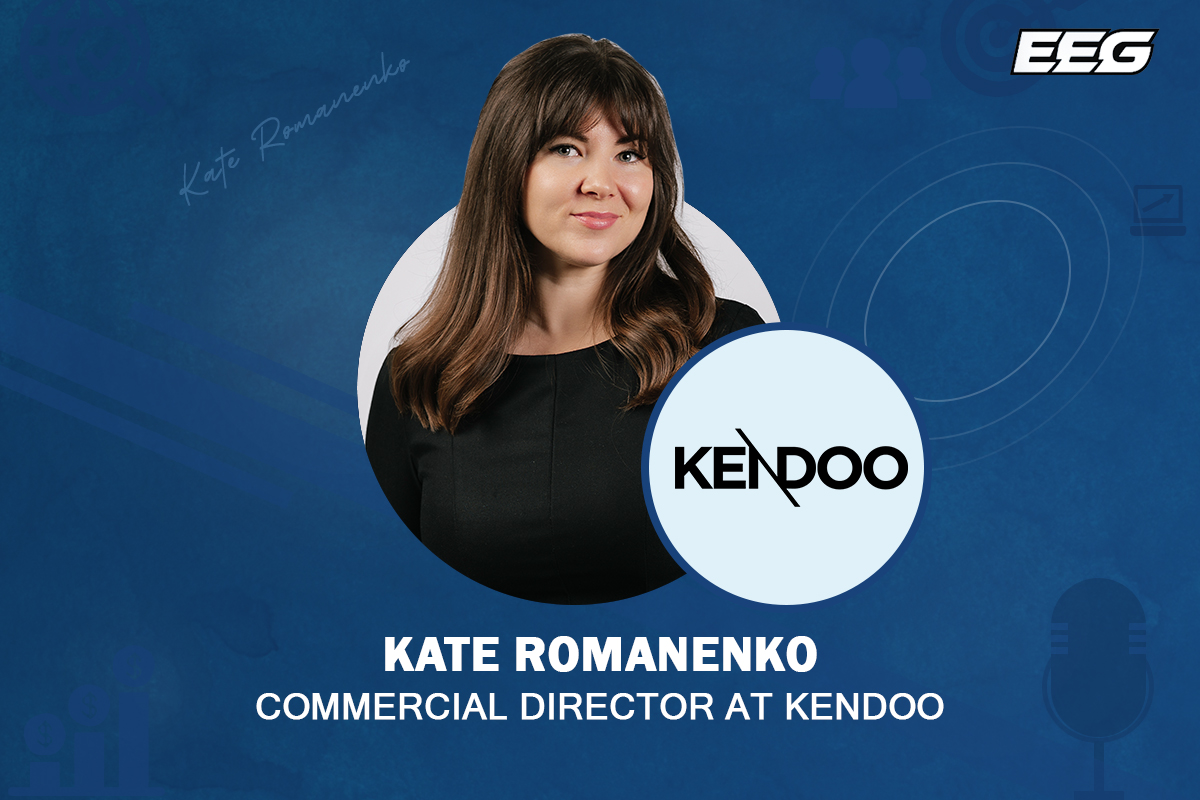
What innovation consists of within the slots industry is often debated. While there are often calls for more groundbreaking features to be introduced, the reality is that the progression of trusted and popular concepts is what drives the industry forward with new releases.
We caught up with the Kendoo’s Commercial Director, Kate Romanenko, to understand more on how long-term retention is often underpinned by controlled evolution of proven concepts, as shown in the company’s success over the past year.
In an industry driven by novelty, why do you think long-term consistency is becoming just as valuable as innovation?
In the competitive iGaming market, everyone is obsessed with “what’s next,” long-term consistency has become a signal of trust. Operators are increasingly cautious: they want games that perform predictably over time, not just those who grow only on launch. Controlled evolution, like we showed with 3 Pots and 4 Pots games, such as 3 Fortune Trees, 3 Gates of Pyramid, 4 Egypt Scarabs etc., proves that you can refresh mechanics and visuals without breaking what already works. Innovation still matters, but when it’s backed by performance data and retention, it becomes scalable, sustainable value rather than short-lived hype.
How does Kendoo ensure technical and gameplay stability across its growing portfolio, especially as it scales into new markets?
At Kendoo, we build on a select set of well-tested core mechanics, evolving them thoughtfully rather than introducing unproven systems. Each game reflects our research, experience, and deep understanding of player needs. This approach lets us expand into new markets without compromising reliability, delivering operators consistent performance and players a smooth, familiar experience they can trust.
What role does reliability play in building strong partnerships with aggregators and platforms?
Reliability is the foundation of trust with aggregators and platforms. When integrations are stable, launches are predictable, and games perform consistently, partners can scale with confidence. For Kendoo, reliability reduces operational friction on their side, fewer incidents, faster rollouts, and clearer performance expectations. Over time, this turns a supplier relationship into a long-term partnership, where growth is planned together rather than driven by constant risk around new releases.
Do you think players are beginning to value dependable, well-balanced games over constant experimentation?
Players enjoy novelty, but they return to games that feel fair, familiar, and well-balanced. Constant experimentation can create friction, while dependable mechanics build confidence and habit. That’s why evolved formats with proven performance tend to retain better: players know what to expect, and that reliability turns curiosity into long-term engagement. For example, taking mechanics like Pots, which originated in land-based casinos, and successfully adapting them for online play.
Can you point to a Kendoo title that’s become a steady performer over time and what that tells you about what players really value?
A clear example is 3 Fortune Trees. Since launch, it has consistently driven strong retention and engagement across markets, with an average of 500 bets per player, which is excellent. The game demonstrates that players value Pots mechanics and reliable, well-balanced gameplay over flashy, one-off features. Its engaging mechanics, popular theme, and premium art and animation all come together to create a game that players love to play.
The post Kendoo interview: Can stability be the new innovation? appeared first on Eastern European Gaming | Global iGaming & Tech Intelligence Hub.
-

 BetPlay7 days ago
BetPlay7 days agoBlask Awards 2025: Betano, Caliente, BetPlay, Betsson and others define Latin America’s iGaming landscape
-

 Canada7 days ago
Canada7 days agoComeOn Launches New Marketing Campaign in Ontario
-

 iGaming7 days ago
iGaming7 days agoMajestic Claws Hold & Hit leaps into Spinomenal’s slots portfolio
-

 DEGEN Studios7 days ago
DEGEN Studios7 days agoDEGEN Studios brings Wild West chaos to the reels with Sunset Showdown
-

 Latest News7 days ago
Latest News7 days agoThrillTech partners with Nordplay Group to launch ThrillPots across Nordic-facing casino brands
-

 bingo halls6 days ago
bingo halls6 days agoBingo Halls and Casinos in Colombia Increased Their Contributions to Healthcare System by 9.3% in 2025
-

 Brightstar Lottery PLC6 days ago
Brightstar Lottery PLC6 days agoBrightstar Lottery Delivers Industry-Leading Sales Force Automation Solution to Ontario Lottery and Gaming Corporation
-

 Compliance Updates5 days ago
Compliance Updates5 days agoFinland Govt Looks at Whether Scratchcards can be Gifted Again



